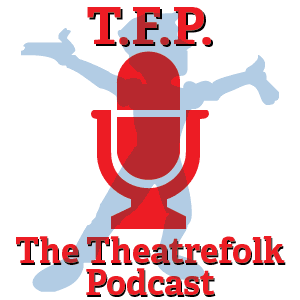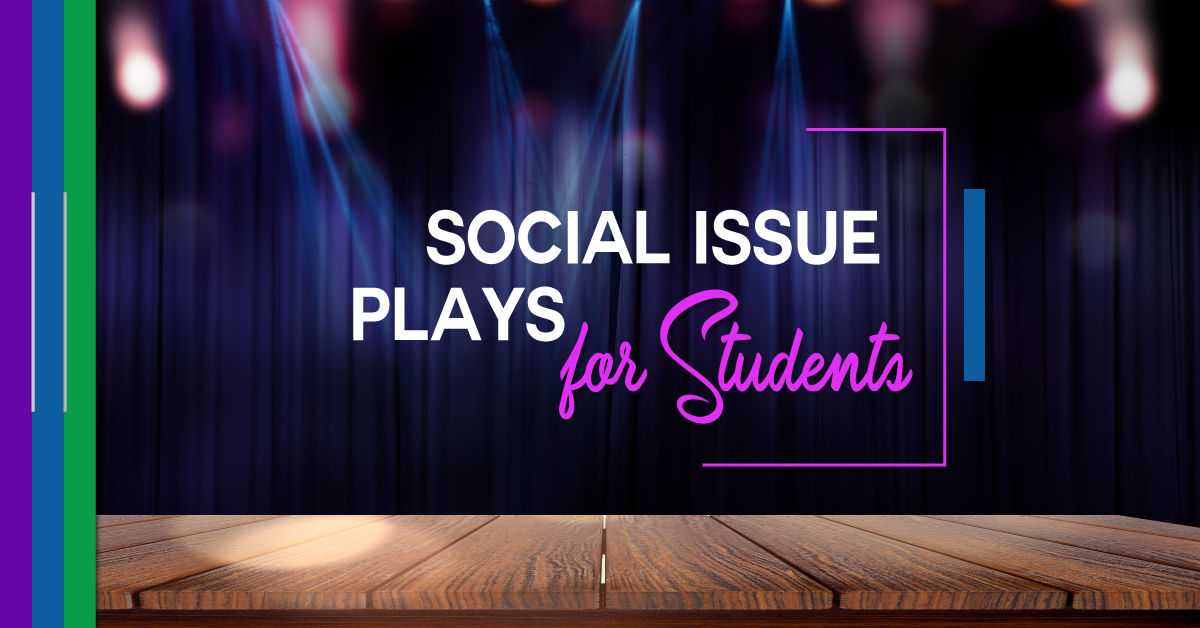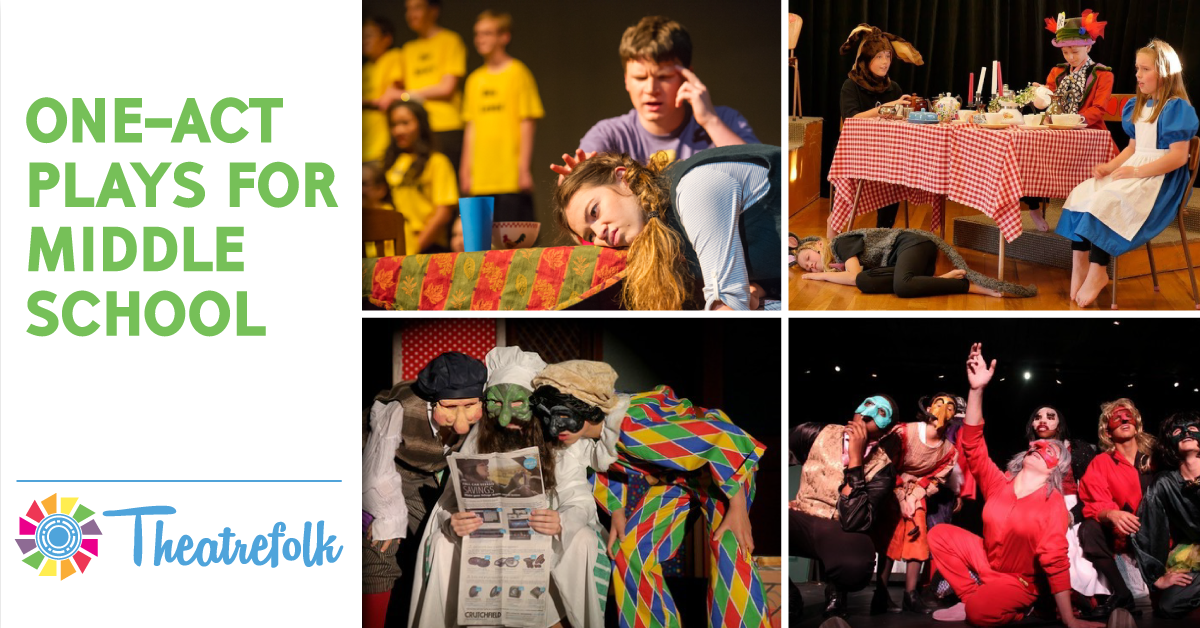Don’t Talk *BLEEP*
Episode 4: Don’t Talk *BLEEP*
This week we’re talking about something that everyone does, doesn’t matter if you’re a writer, an actor, or dancer. And that’s talking \ **bleep** about your work. Accountants don’t talk crap about their work, why do artists? And why do we think that calling our work crap is a sign of humility?
TASK OF THE DAY : So many times I’ll be in a workshop and have writers read aloud and the first thing out of their mouths is “this isn’t very good.” They want to beat me to the punch. If you’re in that situation, if you’re writing, or dancing, or acting and you have to share your work, think before you instinctually want to say those words. Swallow your tongue for once. Don’t throw out that disclaimer and see what happens. Let the work stand on its own
Show Notes:
- Check out our plays for middle schools.
- New Release – Funhouse by Lindsay Price – a middle school play about Bullying.
- New Release – Hoodie by Lindsay Price – a play about self-image.
- New Release – Rebootilization by Alan Haehnel – a terrifically fun play with a cast of thousands.
Subscribe to The Theatrefolk Podcast in iTunes by CLICKING HERE.
Episode Transcript
Welcome to TFP, the Theatrefolk podcast. I am Lindsay Price, resident playwright for Theatrefolk. Hello, I hope you’re well. Thanks for listening.
Today we’re going to talk about talking “bleep”. Okay that was your warning. That is the one bleep of a swear word, which I will now continue to use in its full and unadorned glory. If it offends you, no hormonal follow, you know your way out. Fair warning, but first let’s do Theatrefolk News.
We are really, really pleased with what we’ve put out for middle schools this year. It’s been our mandate to look for, or in my case to write, middle school plays that steer away from the Aesop’s Fable genre type of story. You know we have a lot of… It’s such a tough time to find the right material for students. You know there, it’s the tight rope of you can’t be too kiddy but it can’t be too high school either. So we’ve got some new ones, there is a bully play called Funhouse which I wrote. There’s Hoodie which explores the middle school world about appearance and self-image. And we have a brand new is the full length Rebootilization Alan Haehnel with a huge, huge, huge cast. There are parts in this play for your whole entire school. If you are looking for something different for your middle school group, check these out. Check us out, as always. Go to our website theatrefolk.com and you can search on our place and just start looking for middle school stuff. See what you find, read the samples and hope you find something interesting.
Episode Four: Don’t talk shit.
Today we’re going to talk about you. Yes, you. We’re going to talk about something that you do. Yes, yes I’m talking about you, I’m taking to you. It’s something you do if you’re a young writer, a young artist. Or actually an older artist, say that five times fast. An older artist, just starting out or even if you’ve been banging the drum for years and years. It’s something that you do and it’s something that I do. It’s something every single one of us have done. And that’s put our self down. Specifically put our work down. Talk shit about it.
So don’t. Don’t talks shit about your own work. It’s a seemingly simple rule, and yet not so much. Something I’ve been reminded of recently in an article and it really resonated because talking shit about one’s work is a really easy thing to do. “Oh my work, oh it’s not that good. Oh I wrote something but it’s really bad. Oh you know it’s crap. Oh you know I could do better. Oh that’s not my best, you know blah, blah, blah”. We want to beat someone else, anyone else to the punch. If we talk shit about our work, before anybody else does then they can’t. Hah, I’ve already done it. Ah ha! You can’t hurt me. I’m ahead of the game. You can’t say anything bad about my work before me. If I do it first that negates all the bad feelings in the world that anyone might vault my way. So you might as well, continue on, carry on, go on, shoo, shoo, nothing to see here, nothing to say. You have nothing to say because I have said it first. I have won, I’ve won!
Except that, there are a couple of problems with this brilliant plan. Oh, such a brilliant plan. Oh, you know it’s right up there. There are some issues. The first is that what we perceive as the bad thing, the bad comment, the black cloud being vaulted our way might actually be helpful feedback. Shutting down all the voices means you actually might miss out. Hearing what someone has to say about our work, getting an outside voice, an outside opinion can be useful. And as much as we would sometimes rather eat nails than hear what someone has to say about our work and I’m right there, I think if I had to make a choice sometimes between eating nails and getting feedback, I will eat the nails. But to create in a bubble is not to have the full experience. Does that mean we have to listen to everybody? No of course not. But once you start listening, you get a feel for when someone is trying to be helpful and is good at it. When someone is trying to be helpful and sucks at it, and when someone is actually not trying to be helpful. That one baffles me. It happens all the time. “I liked your work, oh so much. I’m jealous of it so I’m going to say something to throw you off”. Baffles me, but if you never listen to what people have to say it’s really hard to hone that skill. It’s hard to get used to distinguishing between the helpful and the hurtful. If you never hear either, how are you going to know?
Two, numero dos. It is a mistake to equate someone not liking our work for someone not liking us. Which again, I know it’s very hard to do and I am at fault for this all the time. It’s practically impossible, I personify my work. And when someone doesn’t like one of my plays, it is like thousands of tiny daggers plunging in and out of my eyes. And when someone calls my work cute or clever, I actually lose a tiny little bit of my soul. It just falls off and floats away. But we must persevere. We must get outside opinions. We must divide self from work so that the work can improve. So that we can get – what do we want? The full experience. What is the point of writing, creating, dancing, acting, painting in a bubble, in a vacuum, enjoyed by no one but ourselves?
Lastly, and this was the point of the person who said in the article that I read. Don’t talk shit about your work because it is very counterproductive. It doesn’t help you as an artist to think that you’re no good at it. To have people actually agree with you when you say you’re no good and think that your work is shit. How does that help you? Think about hiring a guy to build a deck in your backyard. And you go to meet him and he sits in his office and starts talking like this: I’m not very good, I’m not good, my work’s not good. You have that picture, I didn’t do a good job on that deck. I could have done better. It’s not my best, I had to rush… you know I didn’t take my time, you know…” Would you hire him? Is he the guy you want building a deck? Is he the guy you want around your house with power tools?
So if you do the same thing, if you speak poorly of your work, why would anybody hire you? It’s not an endearing trait. It doesn’t make you look like you have a sense of humility. It makes you look like you have no sense of worth that your work, your plays, your dance, your acting, your painting, your books, are actually no good. Everyone once in, while we will get a submission where the writer will try to beat me to the punch. It’s not my finished, it’s not my best. And I will send it back without reading it. Send me the play you feel is your best. I want your best. When I do workshops all the time when we do writing exercise and the first time, the first thing out of peoples mouth is when I asked them to read, “No it’s not good”.
And you don’t have to be an ass about thinking your work is good. It’s not about swinging to the other extreme where you are a writing god and no one can touch you. I am writer! I stand atop the mountain. My work slays the rest to pieces. How dare you reject me! How dare you say anything negative about the God of Writing? I will smote you. That is putting yourself in a different kind of bubble. A different wall between you and a possible naysayer and it’s just as bad and even less endearing than speaking negatively about yourself.
What you want to do is stand by your work and stand up for your work. Think about your work being hassled by bullies, and there are so many writing bullies out there. There are so many people who don’t write, who have a lot to say about the craft of writing. And okay, think of your work being hassled by these bullies. Would you turn away? Would you say, no it’s not very good, go ahead, beat my play up you know. Let me do it first so you don’t have to. Of course you wouldn’t! You would be proud of what you’ve done. Know that your work is good and specifically, know why your work is good. That’s the best, so then when somebody says something about it, you can go, no it’s supposed to be that way and I like it that way. And that’s the way it’s going to be. Say this is a good play and I like it and this is the reason why I like it. Positive begets positive. Negative begets negative. And I know it’s impossible, it is a hard thing to do but do it once. You’ll like it.
So instead of a QUESTION OF THE DAY, I have a task for you. So again, sitting in those workshops and when writers read aloud then that first thing out of their mouths is “This isn’t very good.” They want to beat me to the punch. They don’t want it to hear what I have to say. If you’re ever in that situation, if you’re writing, or dancing, or acting, painting. And you have to share your work with a group, think before you instinctually want to say those words. Think and shut your mouth before it’s no good, comes rushing out, swallow your tongue. Don’t throw out that disclaimer and see what happens. Let the work stand and you stand behind it.
And that’s where we’re going to end. That’s it that’s all, take care my friends, take care.
Music credit: “Ave” by Alex (feat. Morusque) is licensed under a Creative Commons license.



